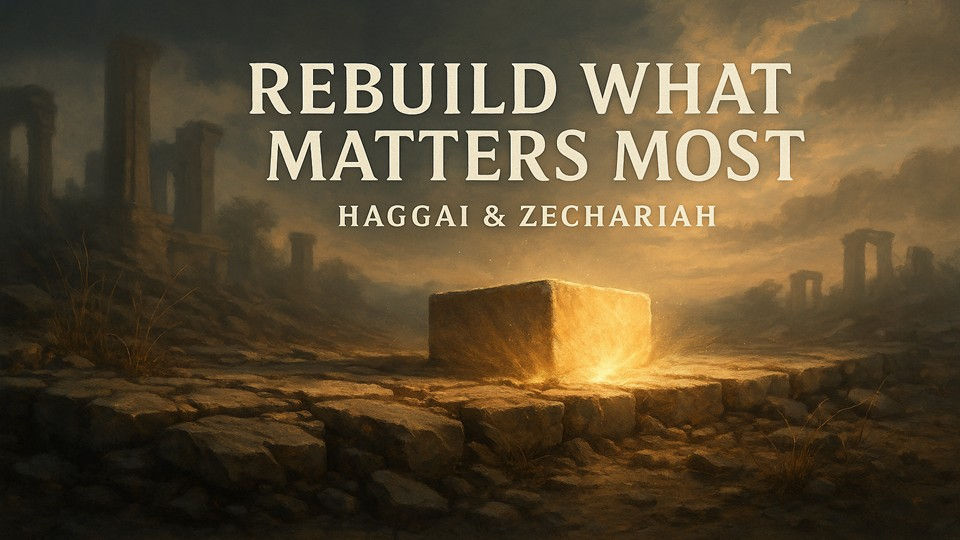When God Takes the Mic
- Office FaithCC

- Aug 22, 2025
- 4 min read
There are moments in life when someone speaks—and everything stops. The crowd goes silent. The room leans in. The microphone is no longer background—it becomes center stage.
That’s what it feels like when God speaks through the prophet Micah.

Micah wasn’t a celebrity prophet from Jerusalem’s inner circle. He was a small-town man from Moresheth, watching injustice unfold from the margins. But when God handed him the mic, he didn’t stutter. He told the truth with piercing clarity, convicting urgency, and unexpected hope.
The Hard Truth
Micah opens not with comfort, but confrontation. God steps to the microphone, not to whisper affirmations, but to call out sin with a broken heart. He exposes corruption in leaders, hypocrisy in worship, and selfishness in the people. The tone is weighty—because sin is weighty.
“Sometimes the most merciful thing God can do is tell the truth. Not to shame you, but to wake you up.”
In Micah’s day, people loved their religious rituals but ignored the poor. They brought offerings to the temple but abused power in the marketplace. God doesn’t applaud that kind of double life. He sees through the polish. And in love, He says, “This must stop.”
This is divine intervention—not to destroy, but to heal what’s broken.
The Shocking Hope
And just when you expect judgment to fall like fire—God pivots.
He doesn’t drop the hammer. He drops a promise.
In Micah 4 and 5, the prophet delivers a stunning vision: the day when God’s kingdom breaks in. It’s not symbolic poetry. It’s a real future.
“The mountain of the Lord’s temple will be established as the highest of the mountains… and peoples will stream to it” (Micah 4:1).
Nations won’t gather for war, but for worship. Swords will become plowshares. Peace will replace power. And at the center of it all is a King—not born in a palace, but in Bethlehem.
Micah 5:2 describes a ruler from ancient times who will shepherd His people and bring peace to the ends of the earth. His greatness won’t come from politics or force, but from the strength of the Lord.
“Peace isn’t a treaty. Peace isn’t a feeling. Peace is a person.”
That person is Jesus.
The Unexpected Question
After God calls out corruption and paints a picture of the coming King, He does something surprising. He doesn’t end the speech. He passes the mic.
And suddenly, the people respond—not with excuses, but with a question:
“With what shall I come before the Lord?” (Micah 6:6)
It’s a question soaked in desperation. Do I bring sacrifices? More good works? My own child? What will make things right?
God’s answer is clear—and stunning:
“He has shown you, O mortal, what is good. And what does the Lord require of you? To act justly and to love mercy and to walk humbly with your God.” (Micah 6:8)
This isn’t a to-do list to earn God’s love.
It’s a new posture for those who already have it.
Justice. Mercy. Humility. These aren’t spiritual electives. They’re the fruit of walking with the living God.
And that walk begins with surrender.
The Voice of Repentance
Micah doesn’t stay on the stage, separate from the people. He steps off it and joins them. By chapter 7, he’s no longer the voice calling to the people—he’s the voice crying with them.
“Though I have fallen, I will rise. Though I sit in darkness, the Lord will be my light.” (Micah 7:8)
That’s repentance. Not self-loathing. Not shame spirals.
Hope.
Because the God who convicts is the same God who restores.
Micah’s closing words aren’t laced with fear—they’re dripping with joy.
The Joy of Mercy
One of the most beautiful verses in all of Scripture is buried in the last chapter of Micah:
“You will again have compassion on us; you will tread our sins underfoot and hurl all our iniquities into the depths of the sea.” (Micah 7:19)
God doesn’t save grudgingly.
He delights to show mercy.
“God doesn’t forgive with a sigh. He forgives with a smile. He runs, not shuffles, toward the sinner who turns back.”
Every sin you’ve ever committed—cast into the sea. Not stored in a file. Not shelved for review. Hurled into the depths, never to be retrieved.
That’s not just forgiveness.
That’s delightful forgiveness.
Micah ends not with a verdict, but with a vision of the kind of God who says:
“Who is like Me?”
And we’re left saying: “No one. No one in justice. No one in love. No one in mercy.”
The Mic Is Yours
God took the mic in Micah’s day to wake up a people asleep in sin, to warn them of judgment, and to woo them with mercy.
But the story doesn’t end with Him speaking.
He hands the mic to you.
“Not to prove yourself. Not to perform. But to surrender.”

So what will you say?
If you’ve been walking with Jesus—how might your response echo His heart for justice, mercy, and humility this week? In your relationships? In your decisions? In your private moments?
If you’ve never trusted Him—what’s holding you back?
He’s not shouting to shame you. He’s speaking to save you.
And when you finally hear Him clearly, there’s only one mic drop that really matters:
“Here I am. I’m Yours.”





Comments